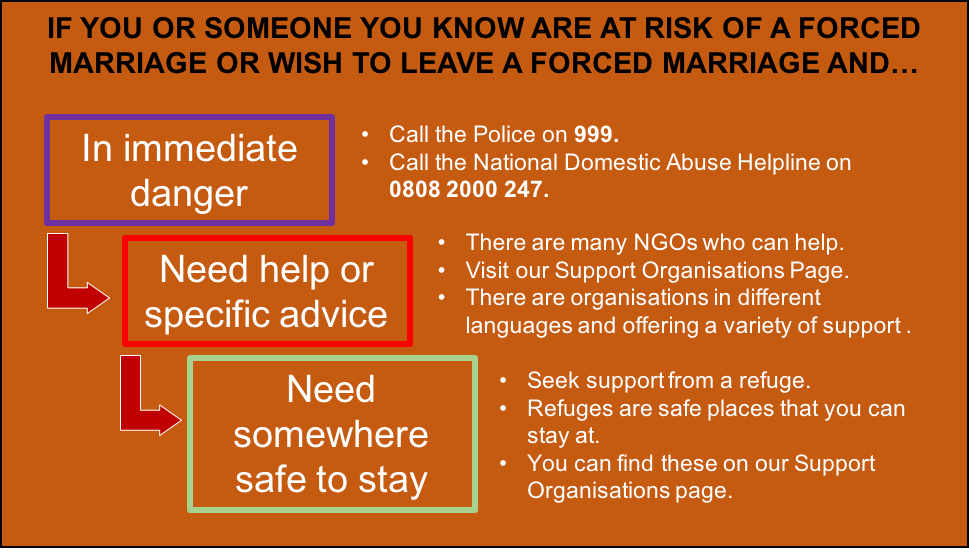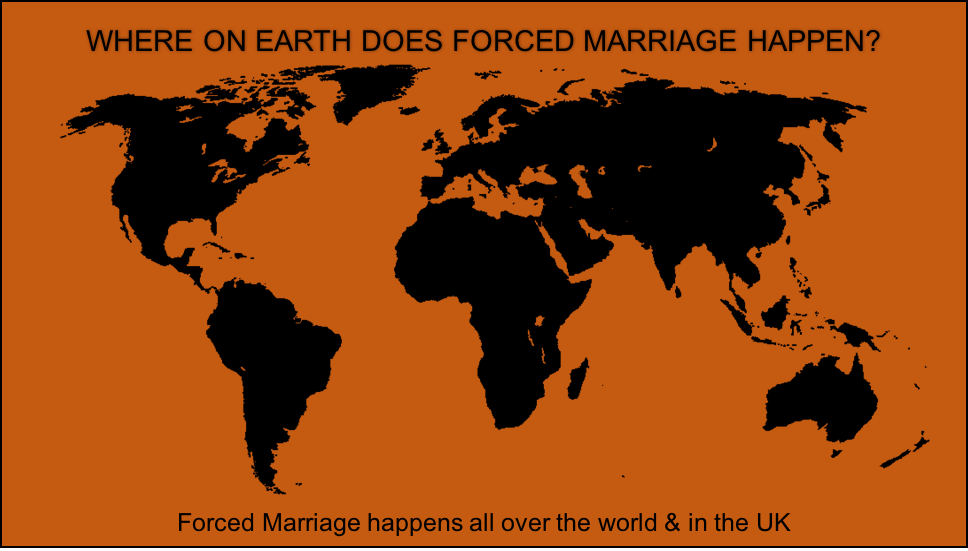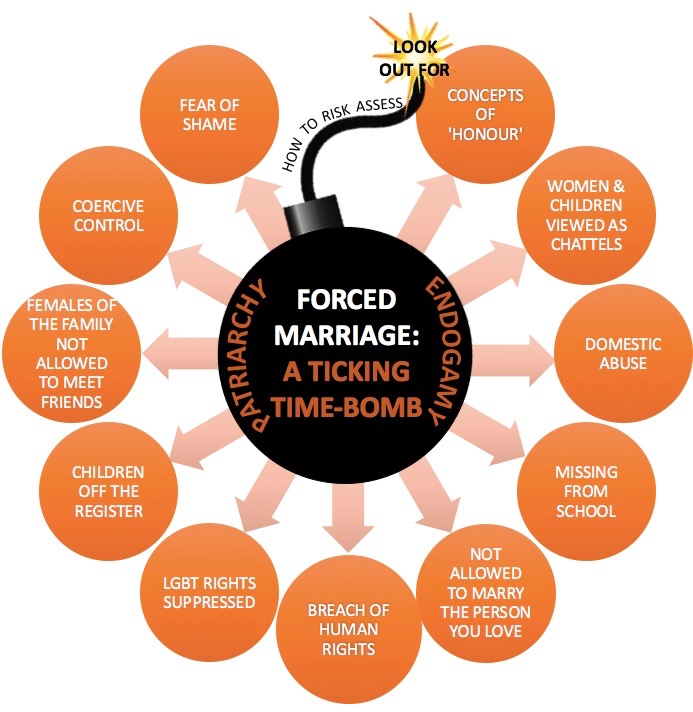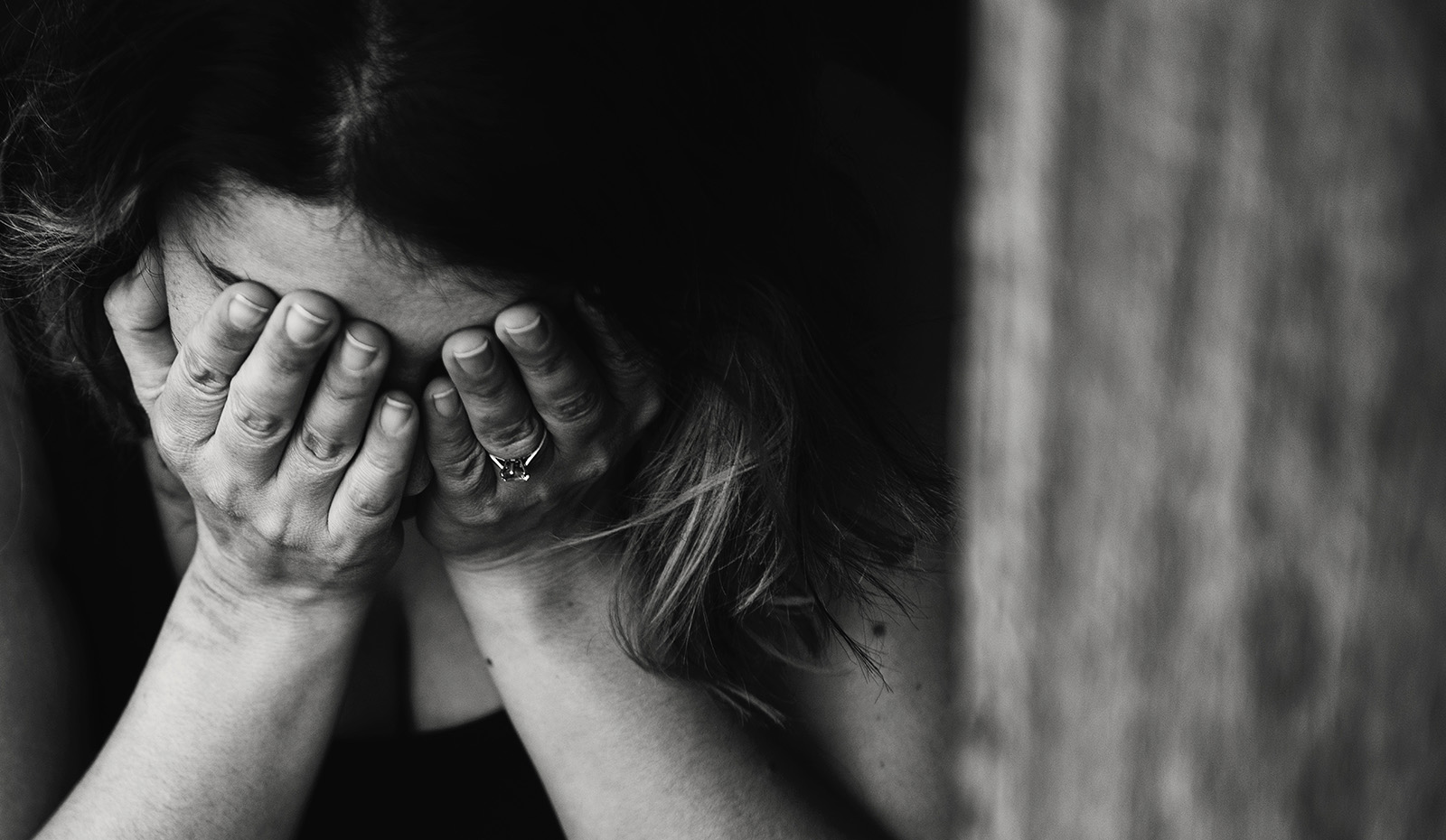About Forced Marriage



A FORCED MARRIAGE IS A BREACH OF HUMAN RIGHTS
WE KNOW:
- A FORCED MARRIAGE CAN LEAD TO RAPE
- A FORCED MARRIAGE IS DOMESTIC ABUSE
- A FORCED MARRIAGE HAPPENS IN AN ONGOING SCENARIO OF COERCIVE CONTROL
- A FORCED MARRIAGE CAN LEAD TO HUMAN TRAFFICKING AND DOMESTIC SLAVERY
- A FORCED MARRIAGE CAN RESULT IN THE DEATH OF THE PERSON WHO WANTS TO ESCAPE
For most adults, marriage is the single most important personal relationship that they form in their lives. When two people marry, we like to think that they are happy and they wish to marry the person whom they are marrying. Nevertheless, this is not always the case.
- At times, a person is forced by his or her parent or both parents into a marriage.
- A person can be forced into a marriage in several different ways, and for various reasons.
- Parents and families can apply emotional pressure, and coerce a daughter or a son to marry a person selected by them - even when the son or daughter in question has expressed a clear desire not to marry the selected partner.
The tragic deaths of Banaz Mahmod was killed for fleeing a forced marriage. Shafilea Ahmed was killed because she refused to be coerced into a marriage. They were let down by frontline services and the police. Samia Shahid another UK citizen was lured to Pakistan (under false pretences of her father's illness). Once there, she was murdered for fleeing a forced marriage, and choosing to marry the man she loved.
The Commission's research revealed:

- Men and women, girls and boys, and transgender adults and children are forced into marriage in the UK.
- in the UK, the age of consent (when a person can 'yes' to marriage) is 18. Nevertheless, there is a loophole in the law (click here to read more), and a child below the age of 18, but older than 16, can be given away in marriage by a parent or a guardian.
- Many rights groups and voluntary sector organisations argue that It is not possible for a child to give informed consent, or say 'yes' to a marriage.
- A child can have no understanding of the physical relationship with a spouse, or of the responsibility of childbearing or parenting.
- There are campaigns to stop the marriage of children aged 16-18 such as Girls Not Brides and IKWRO
- Many persons who are forced into a marriage do not know that the law in the UK provides remedies that can protect them from being forced into a marriage.
- This page discusses forced marriage and the law in the UK.
- In some cases, a forced marriage happens in a transnational context. There are cases when a British citizen is taken abroad to get married or a person from another country is brought into the UK to get married - often by force.
- We have consulted lawyers and experts to discuss the laws in some other countries. Their opinions are being uploaded here
